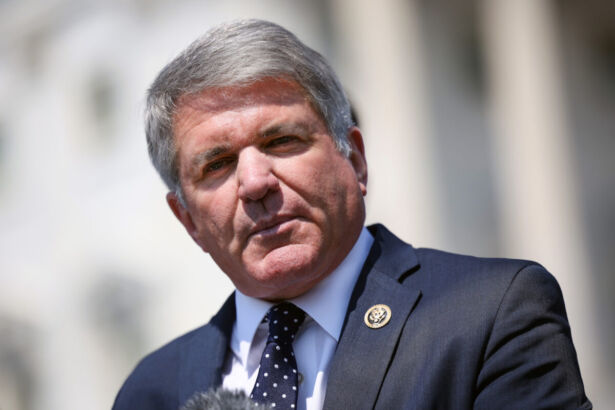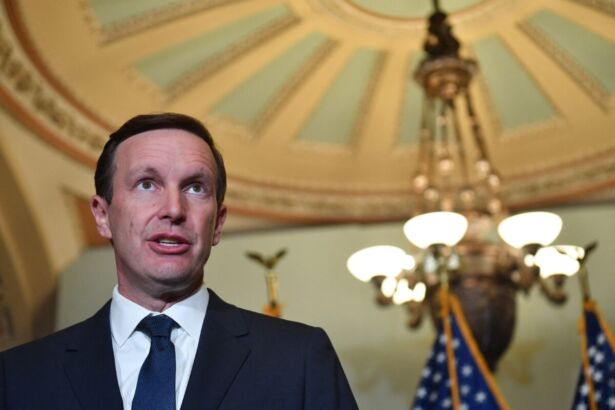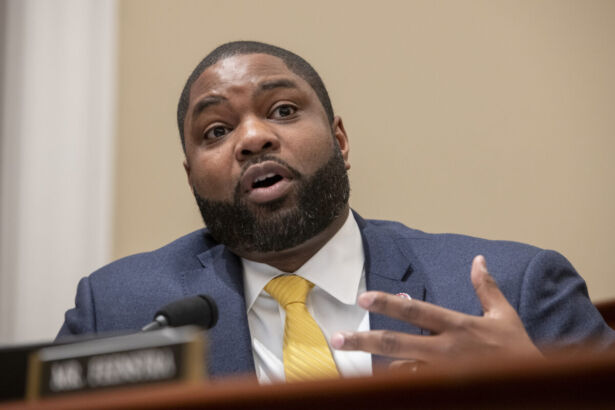As the United States hurtles yet again toward a deadline by which either its debt ceiling is raised or it defaults on its financial obligations, Biden administration officials and Congressional lawmakers took to the Sunday talk shows on May 14 to voice their positions and sway public opinion.
It’s a financial game of chicken, with most Democrats—who are wanting to continue raising the debt ceiling—facing off against a small and tenaciously stubborn faction of GOP fiscal hardliners, among them those who withheld their vote for Rep. Kevin McCarthy (R-Calif.) for Speaker of the House this past January until he agreed to legislative demands on fiscal matters.
Some fear that McCarthy may be forced, because of the commitments he made, to allow a default unless Democrats agree to spending cuts.
Negotiations continue involving Democrat and Republican Congressional leaders and the White House.
Congress established the debt ceiling during World War I, clearing the U.S. Treasury to borrow up to a set limit.
Pandemic expenditures, financial costs of wars in the Middle East, and paying for the care of an aging population have all significantly contributed to the present national debt of $31.3 trillion, a figure that works out to be about $94,000 in debt per citizen.
If Congress and the president can’t agree on raising the debt limit, a default could come as soon as early June and not later than early August.
At a recent CNN Town Hall event featuring GOP 2024 presidential candidate Donald Trump, the former president said that if Republicans in Congress cannot get the spending cuts they seek, a default would be preferable to raising the debt ceiling.
Efforts Continue to Reach an Agreement and Avoid Default
Lael Brainard, director of the National Economic Council, which advises the president on U.S. and international economic policy, appeared on CBS’s Face the Nation to talk with Margaret Brennan about the status of the negotiations.
“The president has said talks are moving along,” Brennan said. “The secretary of the Treasury said negotiators have found some areas of agreement. That sounds like movement. How close are we to a deal?”
Brainard responded, “Yes, so the staff is very engaged. I would characterize the engagement as serious, as constructive. And, you know, I think it is, though, Margaret, helpful to just lift up and talk a little bit about what is at stake here.
“So, when I talk to CEOs, to business leaders around the country, they tell me things are actually going very well. But their biggest concern is that Congress might fail to prevent default and that that would be catastrophic. It would lead to higher borrowing costs for cars, for mortgages, for small businesses, even for the U.S. government. And so the most important thing is making sure that Congress fulfills its basic responsibility to avert default.”
On ABC’s This Week, host Jonathan Karl questioned Rep. Michael McCaul (R-Texas), chair of the Foreign Affairs Committee, on Trump’s endorsement of a default. He asked McCaul, “How concerned are you that we are headed toward a default?”
The congressman replied, “Well, this is always a game we play every Congress, you know, and daring each other to jump off the cliff. It’s a dangerous game. I think defaulting on our full faith and credit, any financial person would tell you that’s very catastrophic.”

McCaul said that Republicans are willing to raise the debt ceiling but want “meaningful spending cuts and capping spending at 2022 levels.”
Deputy Treasury Secretary Wally Adeyemo discussed the debt ceiling with host Dana Bash on CNN’s State of the Union. Adeyemo struck a note of bipartisanship on the issue, stating that conversations between the parties about the debt were valuable.
“I know the president looks forward to getting together with the leaders to talk about how we continue to make progress,” said Adeyemo. “But it’s important for us to remember what the stakes are here.
“And ultimately, the stakes are the United States of America has never defaulted on its debt, and we can’t because defaulting on our debt isn’t only about financial markets; it’s about paying our Social Security recipients, it’s about paying our troops, it’s about paying the men and women who are working in the border today. That’s why the president’s called on Congress to lift the debt limit as soon as possible.”
Sen. Chris Murphy (D-Conn.) told host Chuck Todd on NBC’s Meet the Press that he is concerned about the stand on U.S. government spending that Speaker McCarthy is taking.

“Chuck Schumer, Joe Biden, even Mitch McConnell have said that if we can’t get an agreement in the next few weeks, default is off the table,” said Murphy. “The only leader who says we are going to light the American economy on fire if we can’t get an agreement in the next 10 to 14 days is Kevin McCarthy.”
Rep. Byron Donalds (R-Fla.), who has endorsed Donald Trump’s 2024 presidential run, shared his opinion on Joe Biden’s stewardship of the economy with Fox News Sunday’s Shannon Bream.

“Any family and any business in our country understands you cannot just continue to spend massive amounts of money and then borrow massive amounts of money and there will be no consequences,” Donalds said.
“Every American family has already seen the first consequence from Joe Biden, and that is a massive inflation that has been the most insidious tax the American people have seen, whether you’re rich or poor, whether you’re black or white, whether you’re Republican or Democrat, it has come for everybody.”
From The Epoch Times
